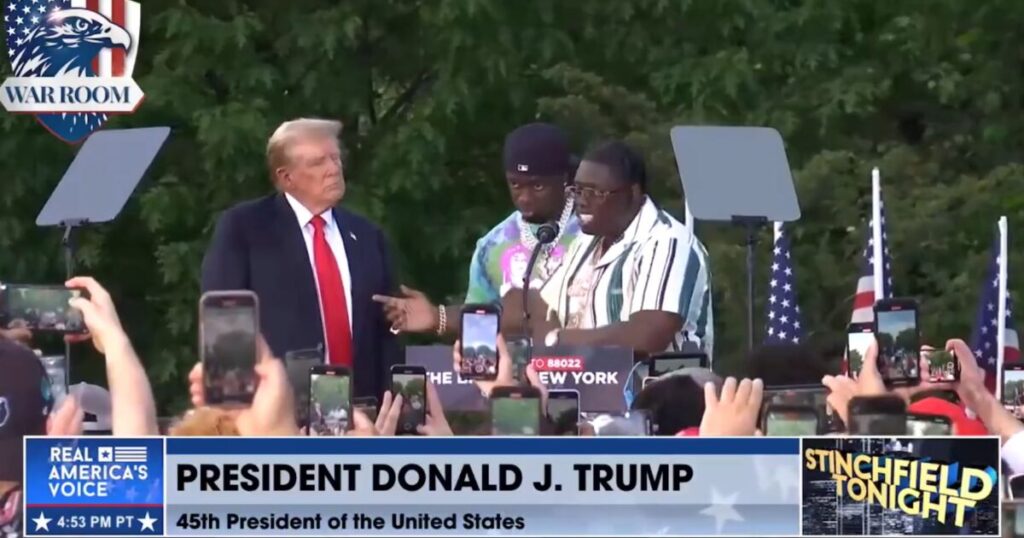President Trump’s rally in the Bronx has underscored his growing appeal among Black voters, presenting a challenge to the Democratic Party that has traditionally relied on this demographic for support. Recent data, particularly from the New York Times, indicates that Trump has made significant inroads, capturing at least 15% of the Black vote, a notable figure for a Republican candidate. This shift reflects a broader dissatisfaction within the Black community toward the Democrats, who many feel have presided over decades of poverty, crime, and hardship without meaningful change. The urgency of this sentiment is evidenced by an observed trend that suggests Democratic candidates, including Vice President Kamala Harris, are struggling to maintain support among Black voters.
Compounding the Democrats’ concerns is not only Trump’s appeal but also the declining support for Harris among young Black men, a demographic that historically leaned heavily toward the Democratic Party. A recent analysis by CNN’s Harry Enten highlighted that the Democratic margin among Black men under 45 has dropped sharply—from an 81-point advantage for Obama in 2012 to just 41 points for Harris in recent polling. This steady decline indicates a potential shift in allegiance that could have substantial implications for upcoming elections. It is a worrying trend for Democrats, especially as they face a potential loss of a significant portion of the Black vote that could redefine electoral dynamics in critical swing states.
Barack Obama’s acknowledgment of waning enthusiasm among Black voters for Harris points to a larger issue within the Democratic Party: a belief that their support is guaranteed. The conversation surrounding Trump’s increased popularity echoes sentiments shared by public figures such as Oprah Winfrey, who recounted personal encounters reflecting this shift in voter sentiment. The implications are severe; with young Black men increasingly favoring Republican candidates, the Democratic Party must grapple with the reality that their traditional support base may not remain loyal in forthcoming elections.
Historical data suggests that Trump is performing better with Black voters than any Republican candidate since 1960. The Gateway Pundit identified that if Trump were to capture as much as 25% of the Black vote—a feasible scenario according to current trends—it could lead to substantial electoral losses for the Democrats in several critical states including Virginia, Florida, Ohio, and North Carolina. Such a loss of voting support among Black constituents would not only jeopardize key battleground states but could also secure a landslide victory for Trump in a potential 2024 election, demonstrating the shifting tides of voter allegiance.
The demographic shifts revealed by CNN’s Harry Enten indicate that the decline in support for Democrats among young Black men is not simply a reaction to individual candidates but part of a broader trend. The stark decrease in Democratic margins from 81 points in 2012 to 41 points today suggests an enduring and accelerating disconnection between the Democratic Party and its once-reliable voter base. This disconnection raises crucial questions for the party about how to address the evolving concerns and priorities of Black voters, particularly the younger generations who feel increasingly disenfranchised.
In conclusion, as President Trump rallies support from Black voters, the challenges faced by the Democratic Party become more pronounced. With historical lows in approval among pivotal demographic groups, and concerning trends indicating a shift in allegiance, the Democrats appear to be at a crossroads. With the alarm raised by data analysis and public sentiment, the party must urgently reassess its approach to retain support from a constituency that has been a cornerstone of their political identity, lest they risk losing vital electoral ground in the future.

